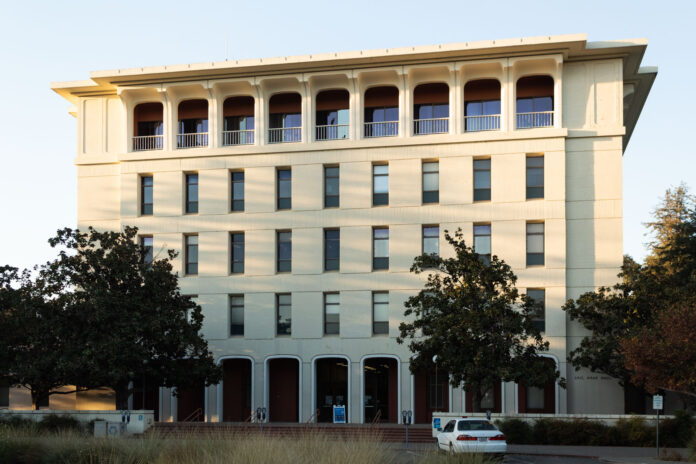The increase includes an additional amount above current inflation and would go into effect for incoming students in fall 2022
By KATHLEEN QUINN— campus@theaggie.org
On Thursday, the UC Board of Regents will vote on a new tuition increase after holding off decision-making during the height of the pandemic.
The proposed increase would not go into effect until fall 2022 and would affect undergraduate and graduate students separately.
“Under the plan, tuition for current UC undergraduates, along with those who enroll this fall (2021), would stay flat for the duration of their enrollment, up to six years,” said UC senior communication strategist Stett Holbrook, via email. “The increase would apply to new and continuing graduate students, but not until fall 2022.”
The undergraduate shift for 2022 includes a 2% rise in tuition in addition to the current rate of inflation, with somewhat smaller increases above inflation until the 2025-2026 school year, according to the proposed adjustment for student charges.
The intention, according to the regents, is to create stability in assessing student tuition moving forward.
Ryan Manriquez, the ASUCD president and a fourth-year political science and communication double major, said he has been speaking with other student representatives throughout the UC system who will attend the July 22 meeting.
“Any increase in student tuition and fees is ultimately going to harm students, whether it’s now or in six years,” Manriquez said.
Nicholas Stapleton, a 2021 UC Davis computer science alumnus, said a public institution’s first responsibility is to all Californians.
“I understand the need to increase costs to cover inflation, and I appreciate the rolling cohort system, but the rate that tuition has increased since the 1970s has grossly exceeded the rate of inflation,” Stapleton said.
The tuition and fees of the mid-1970s for in-state residents were $630. Adjusted for inflation, this would make the yearly cost of attending UC Davis a little over $3,000 and not the current yearly rate of over $14,500.
The Board of Regents proposal states that the additional funds would go to mitigating a proposed budget shortfall and addressing deferred maintenance and technology infrastructure needs which it states could cause further liability.
According to the proposal, “campuses have delayed needed investments in their technology infrastructure and financial systems and, in some cases, are now using platforms that are no longer supported by the vendor, creating potential risks to data security and business processes.”
This statement in the proposal comes after a massive data breach that exposed students and staff to identity theft by leaking personal information including social security numbers.
The proposal cites a decrease in state funding as part of the shortfall it projects, however, Governor Gavin Newsom’s budget revision in May included over $950 million for the UC system, as well as $150 million in federal funds for on-campus repairs and energy efficiency using it as an incentive to not raise student tuition and fees.
“I don’t think it’s valid, especially when you have millions of dollars that the governor is proposing for the system to have right now,” Manriquez said.
The proposal states that the increase is necessary regardless of the proposed base support funding provided by the state’s 2021-22 Budget Act.
Enrollment in the UC system has increased dramatically since the previous tuition increase, which the proposal said has reduced the amount of benefit provided by the UC system per student by 36%, according to a display presented in the proposal.
“Undesirable consequences of this decline in resources can be seen in several metrics directly related to the student experience, including a deterioration in the student-faculty ratio, larger class sizes, a substantial backlog of campus deferred maintenance needs, and a decline in the percentage of students who would, knowing what they know today, choose to attend the UC campus at which they enrolled,” the proposal states.
Aidan Kato, an incoming third-year political science major, said he considers the rise in tuition to be a “necessary evil.”
“Right now, we are getting way less of a bang for our buck,” Kato said, citing the student per contribution estimates in the proposal.
Sterling Beauchamp, a third-year applied mathematics major, said the issue is probably more complicated than most students would like to imagine.
“I think transparency would go a long way in helping the process,” Beauchamp said.
Holbrook said that the university has been exploring a multi-year plan for several years and that the intention is to increase predictability and provide better budget planning for campuses.
According to Manriquez, there are many other ways that the UC system “can get out of the red” without raising student tuition.
“I can tell you one thing that our students are not millionaires and it’s millionaires making these decisions at the Board of Regents right now,” Manriquez said. “Is asking it of students really the right way to go?”
Written by: Kathleen Quinn— campus@theaggie.org




